Our events
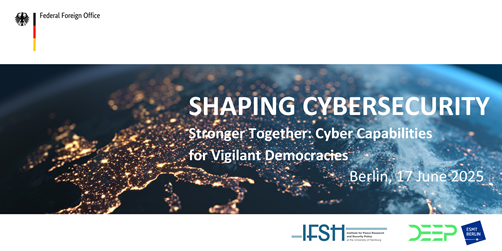
Shaping Cyber Security 2025
The topic of our flagship conference was “Stronger Together: Cyber Capabilities for Vigilant Democracies” and the event took place in June 2025

Workshops
Check out the academic and policy workshops we organized.
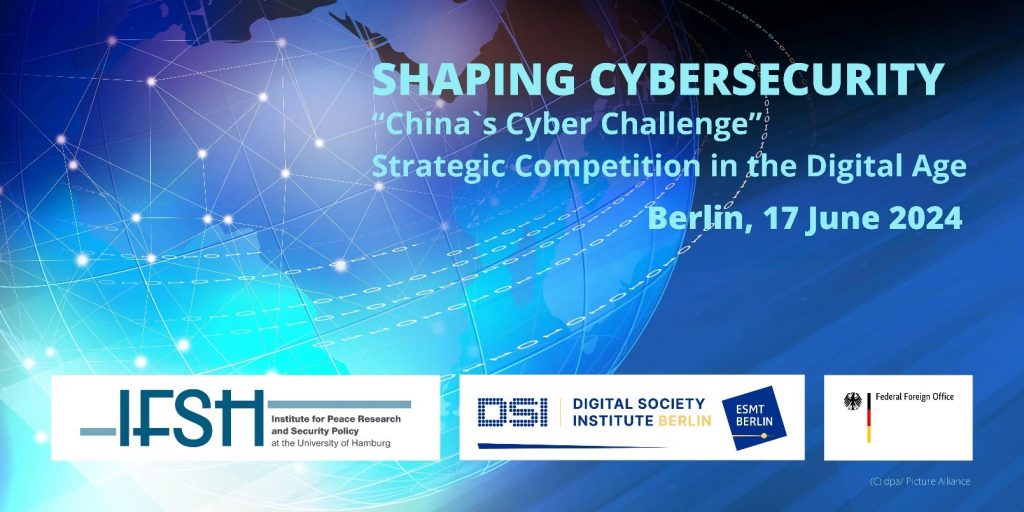
Shaping Cybersecurity 2024
The topic of our flagship conferencewas “China’s Cyber Challenge – Strategic Competition in the Digital Age” and the event took place in June 2024.
Events
-
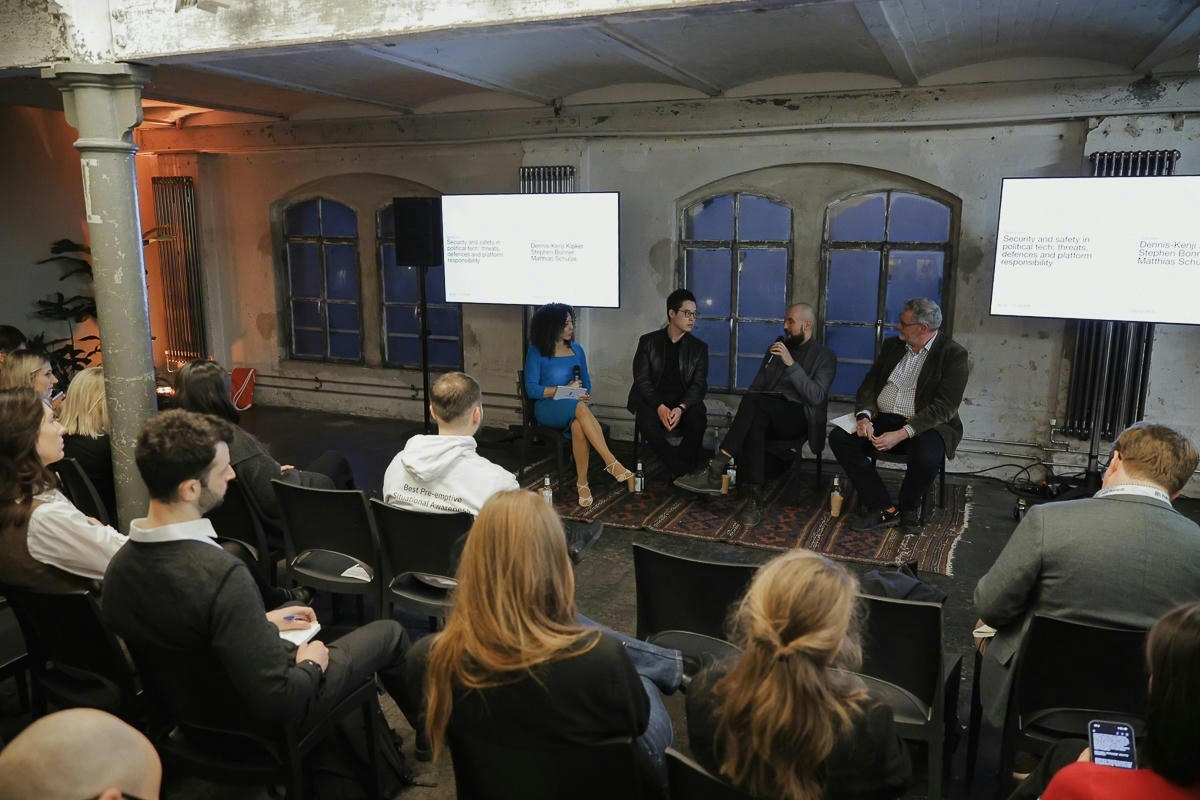
ICS particiapted at the Political Tech Summit on “Security and Safety in Political Tech – Threats, Defences and Platform Responsibility”, held in Berlin on January 23, 2026. The session brought together experts from TikTok, civil-society and researchers to discuss how platforms can not only keep users safe but also demonstrate their commitment to security, integrity,…
-

How to defend against disinformation and information warfare is one of the key questions that democratic states face within the current environment of geopolitical tension and worldwide authoritarianism. Typically, awareness campaigns and fact-checking have been heralded as solutions to this growing problem. However, if artificial intelligence, deep fakes, and synthetic media increase in quality and…
-
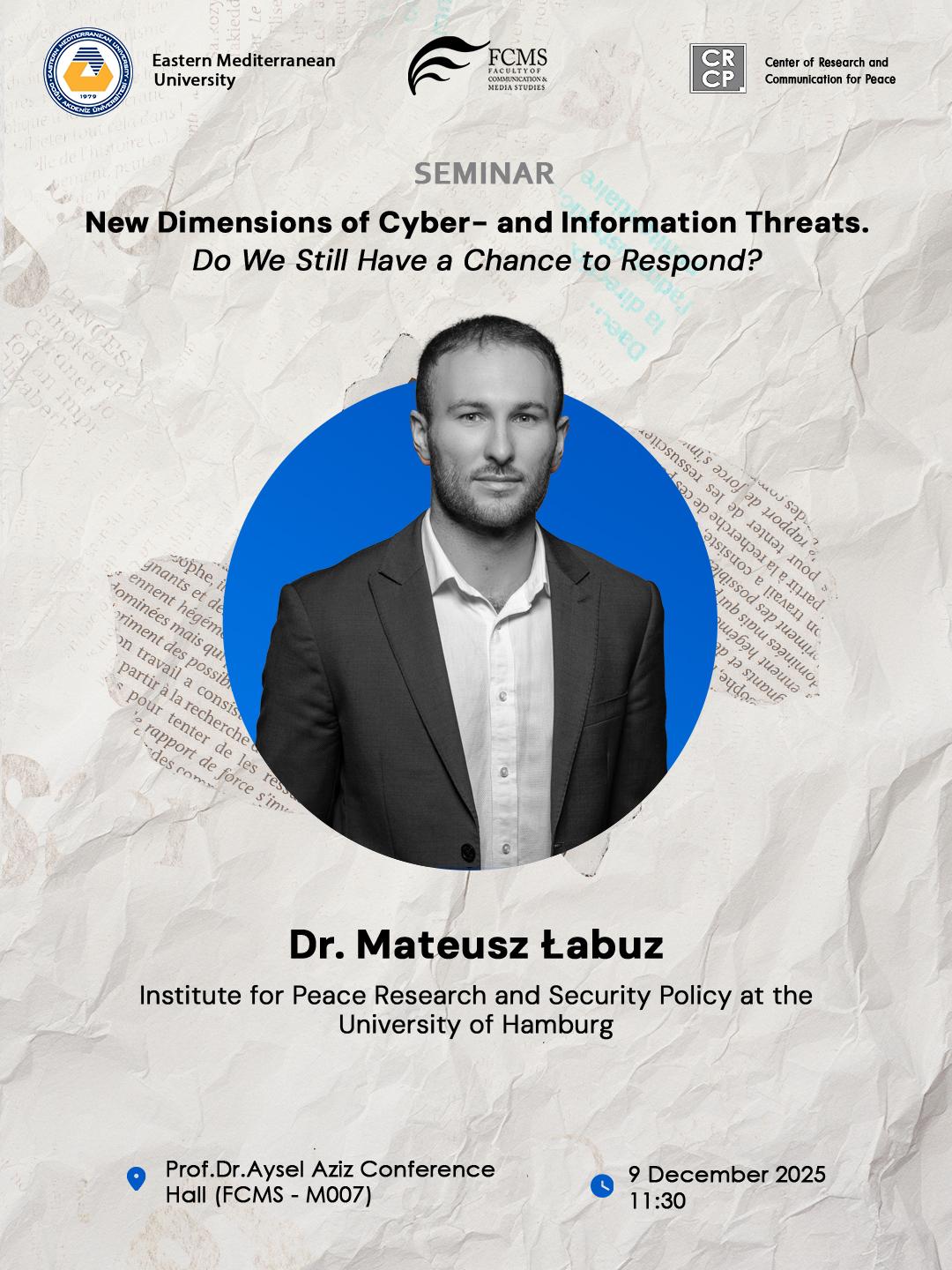
Mateusz was the keynote speaker at a webinar organized by, among others, the Eastern Mediterranean University in Cyprus. During his presentation, he discussed various aspects of threats in the cyberspace. Mateusz also participated in a discussion with the participants, discussing, among other things, security measures in digital environment This was another opportunity for engaging conversation.…
-
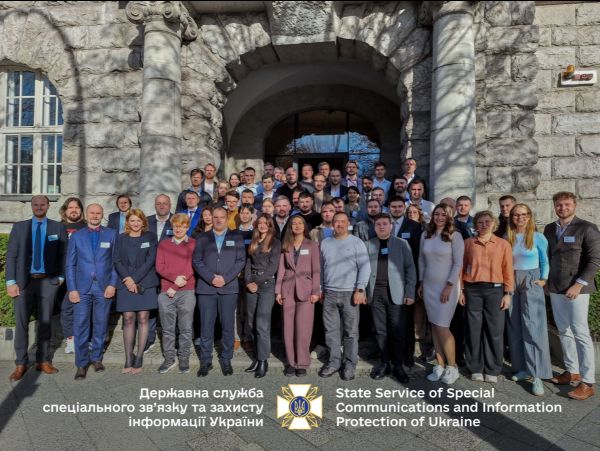
Mateusz took part in a conference co-organized by Deutsche Gesellschaft für Internationale Zusammenarbeit (GIZ), and funded by the German Federal Foreign Office and the European Union, together with the State Service of Special Communications and Information Protection of Ukraine (SSSCIP) in Berlin. The main theme of the conference was “Beyond Firewalls: Protecting Critical Services and…
-
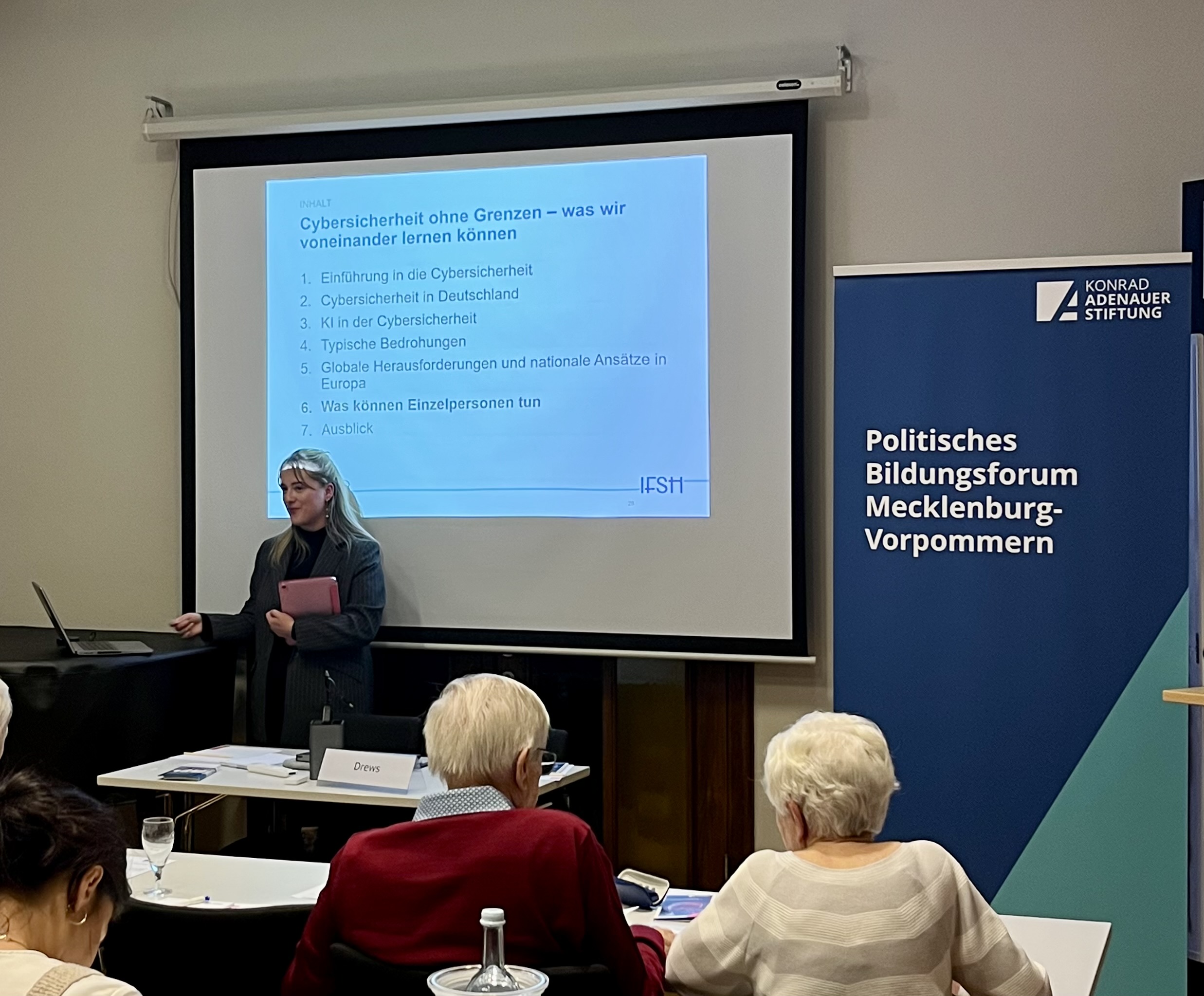
Lena gave a talk titled “Cybersecurity without Borders – What We Can Learn from Each Other.” The goal of the presentation was to inform the audience about current threats and the lessons that can be drawn from other countries. Artificial intelligence and cybersecurity offer great opportunities but also come with significant risks. Raising global awareness…
-
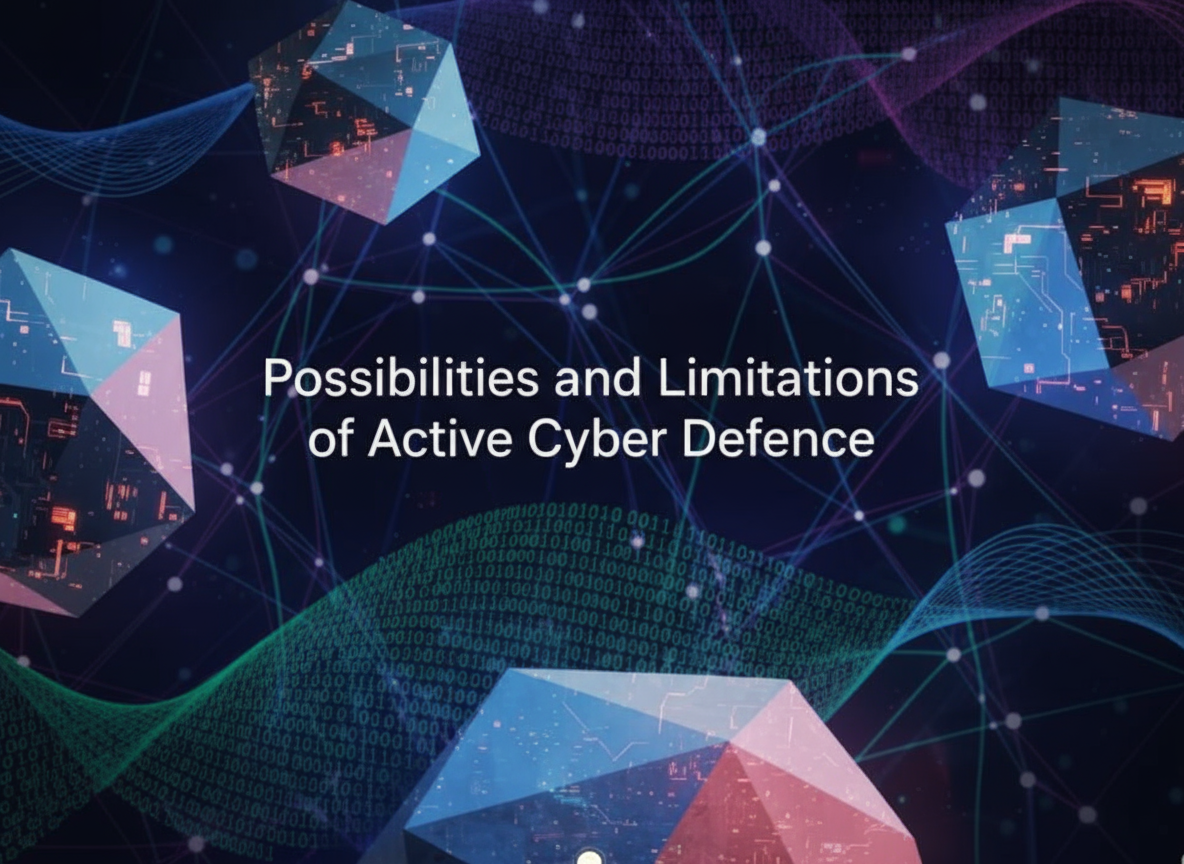
The ICS team recently facilitated an event on limitations of active cyber defense postures during a recent IFSH “Kurz erklärt” roundtable at the Berlin office. Cyberattacks against Germany are increasing in both number and complexity, raising calls for more proactive responses. Germany has been debating “active defense” for a while now. However, previous theoretical proposals are…
-
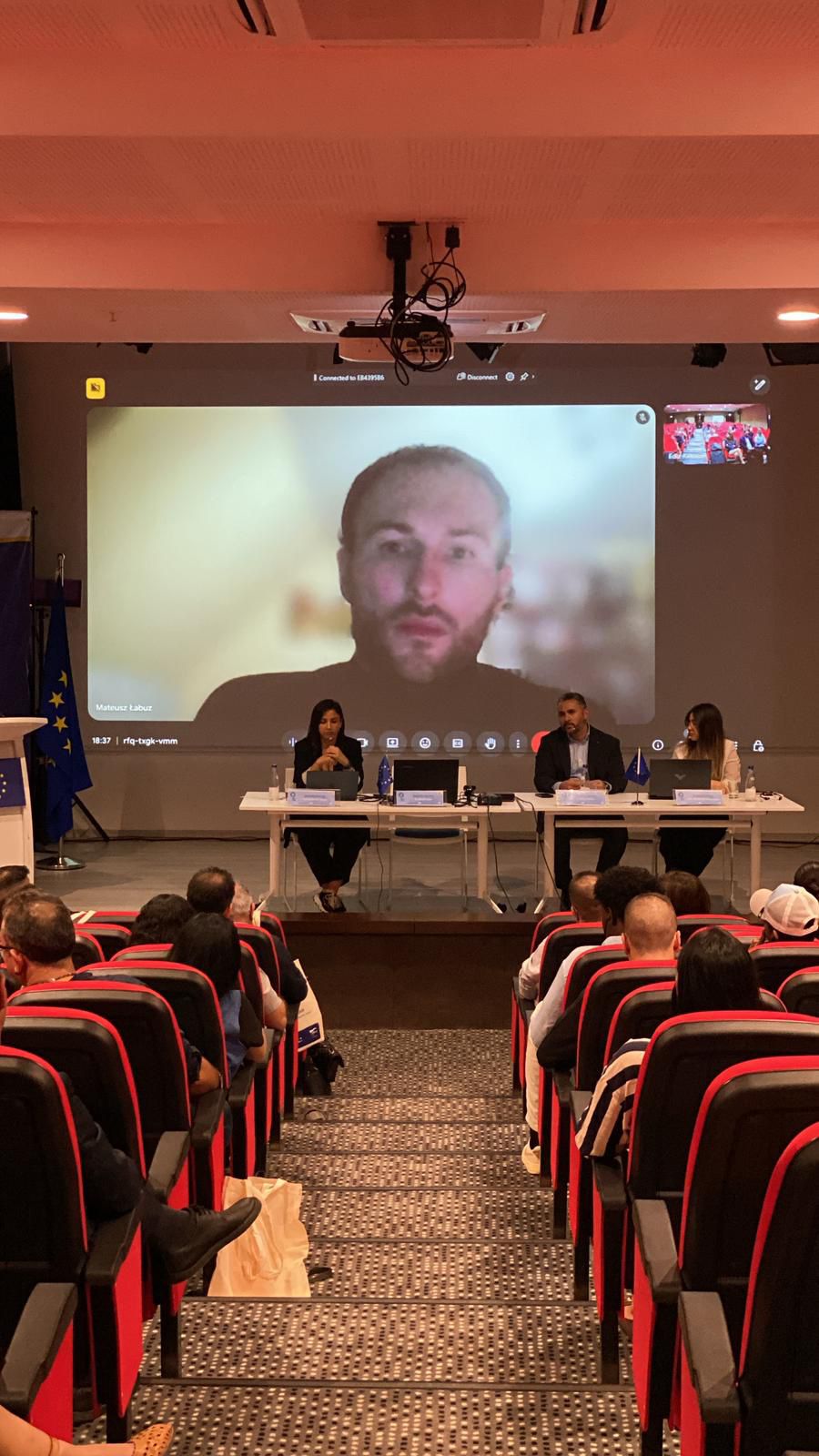
Mateusz participated in a discussion titled “Digital Threats and the Human Element: From EU Policies to Everyday Life,” organized by EU InfoPoint in Cyprus. He shared his observations about the dynamic changes in cyberspace that present us with new challenges. Challenges that are universal, regardless of geographical location, even if the intensity and consequences may…
-
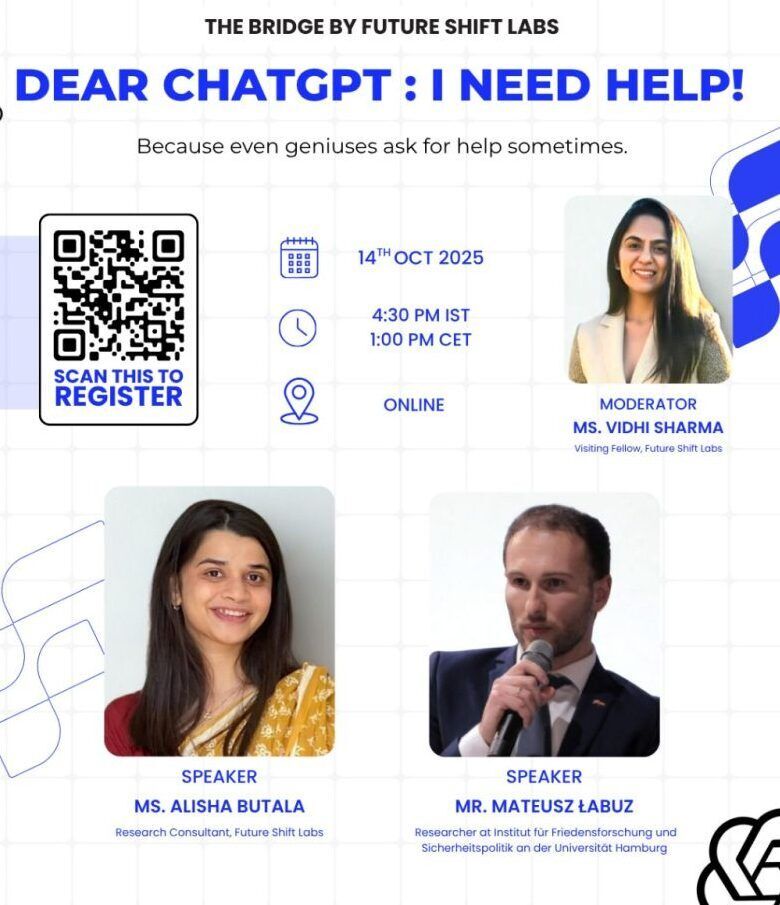
Mateusz was one of the keynote speakers at a webinar organized by the Future Shift Labs. The meeting was organized as part of The Bridge series, the main aim of which is to raise social awareness in the area of modern technologies. The meeting focused on new applications for large language models, with Mateusz concentrating…
-
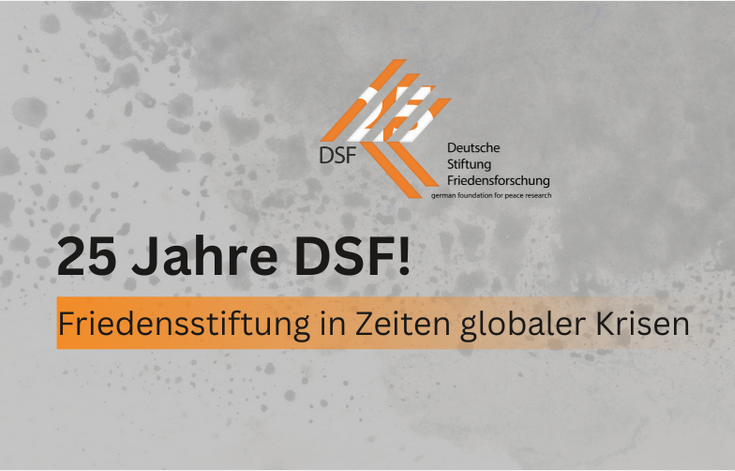
Matthias participated at the panel “Arms control in crisis: Technological and security challenges” at the Deutsche Stiftung Friedensforschung Konferenz in Osnabrück. The panel explored how traditional arms control struggles to address digital technologies, including software, AI, and cyber capabilities. Matthias argued, that unlike physical weapons, digital tools are inherently flexible, hard to define, easily automated,…
-

On July 9, 2025, the Institute for Peace Research and Security Policy (IFSH) hosted a webinar titled “Cyber Operations in the Wars in Ukraine and Gaza: No Revolution in Warfare Yet.” The event marked the launch of a new research paper by Dr. Matthias Schulze, offering an evidence-based analysis of cyber-operations in the Russia-Ukraine war…
Archive
- Political Tech Summit
- Defending democracy against foreign influence campaigns: A wargaming exercise
- Webinar with Cyprus institutions
- Mateusz as a speaker at the GIZ conference
- Exploring Global Lessons in Cybersecurity
- ICS as part of the IFSH event format “Kurz Erklärt”
- Discussion Digital Threats and the Human Element: From EU Policies to Everyday Life
- Mateusz speaking on the risks of misusing LLMs
- Arms control in crisis: Technological and security challenges
- Webinar: Cyber-Operationen in den Kriegen in der Ukraine und im Gazastreifen
- Webinar at Nottingham Trent University
- Conference in King’s College in London
- Matthias at the symposium of Evangelic Church in Germany
- Our workshop on cybersecurity and cognitive warfare
- Shaping Cybersecurity 2025: „Stronger Together: Cyber Capabilities for vigilant Democracies”
- Webinar with the students of the University of Warsaw
- ICS at the German Forum Security Politics by BAKS
- Keynote speech at the Constitutional Club in New Delhi
- Keynote at the seminar organized by the Western Institute
- Preparations for Cyber Agora
- Keynote at the seminar organized by Gemeinschaft Katholischer Soldaten
- Participation in Friedenswerkstatt “Konflikte und Konfliktbearbeitung im digitalen Raum”
- Participation in Promotionskolleg “Sicherheit und Entwicklung im 21. Jahrhundert” seminar
- Shaping Cyber Security 2024: “China’s Cyber Challenge ” Strategic Competition in the Digital Age
- Shaping Cyber Security 2023: “Cyber in Conflict“ – Supporting Partners & Avoiding Escalation
- Kick-off Workshop on “Zero Trust”
- Workshop on the Implementation of UN Cyber Norms
- Workshop on Promises and Pitfalls of a Global Cybercrime Convention
- Workshop on the Cybersecurity Chapter of the German National Security Strategy
- Workshop on Government Vulnerability Disclosure
